In this article, we are going to show a product that has over 10 years now in the infrastructure market. There are now more options than when it first launched, but there are very few pieces of gear that we get to show on STH that can survive a decade while still being sold new. The CCH-04U’s that we are looking here are 4U units, and one of them is filled ready to handle 288 fibers. We also have a new unit that will be part of our in-progress fiber project.
Corning CCH-04U LANscape 288-Fiber Distribution Box
As a quick note, we have a video for this one that you can see on the official STH YouTube channel here:
We always recommend that you open this in a dedicated tab, window, or app for better viewing.
What we are looking at is the Corning CCH-04U which is part of the company’s LANscape line. CCH stands for Closet Connector Housings in Corning’s abbreviated naming.
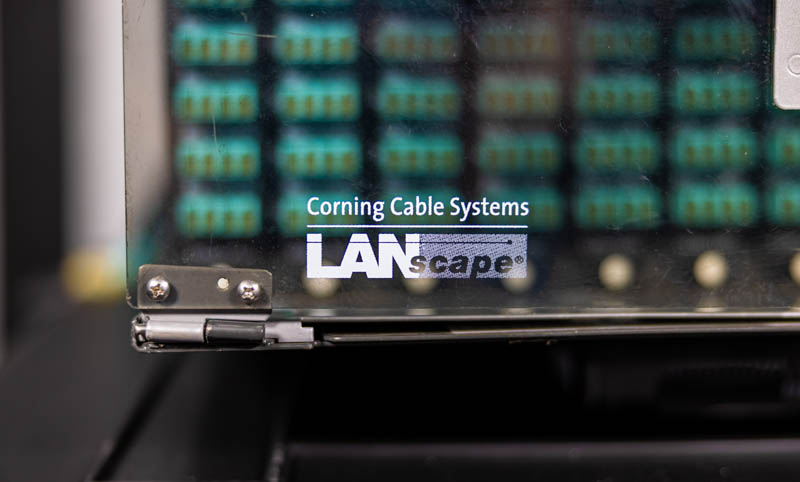
Here is the “updated” look on the newer CCH-04U:
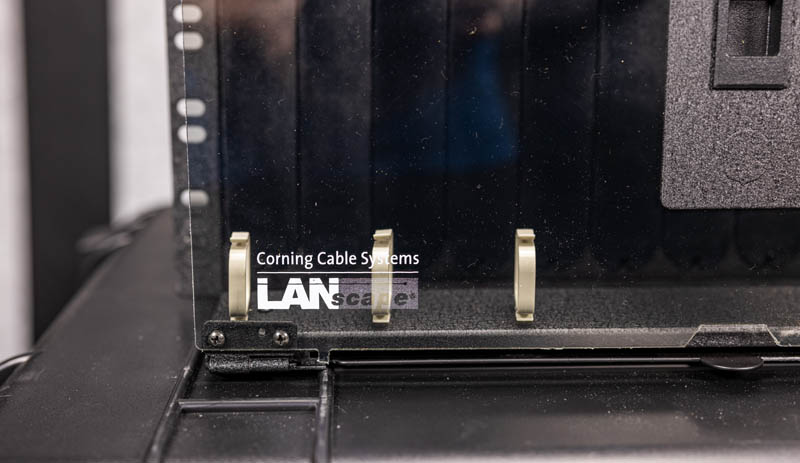
Corning also makes 1U, 2U, and 3U housings as part of this same system. One of the nice things about this is that the 4U solutions we are looking at can handle twelve CCH modules and they also have a clear front panel so you can see the connections before opening up and accessing the faceplate.
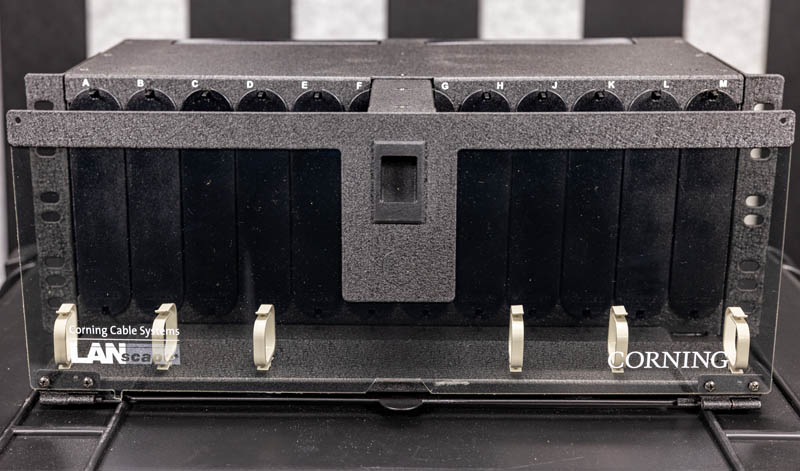
Here is an example with that front panel down. One can see that this model has cable management installed at the bottom. There are then twelve slots for modules labeled A-M. Below we also have a single 12x MTP-12 coupler module installed designed to handle twelve cables and a total of 144 fibers.
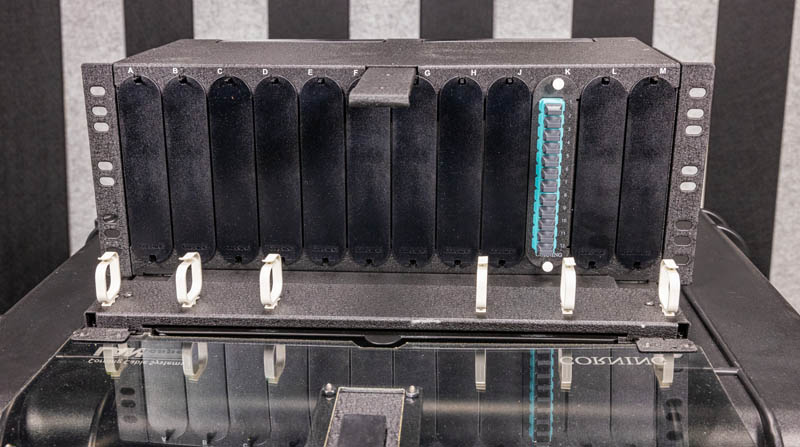
Here you can get a sense of what one of those 12x MTP coupler panels are doing with an MTP housing on both sides of the panel.
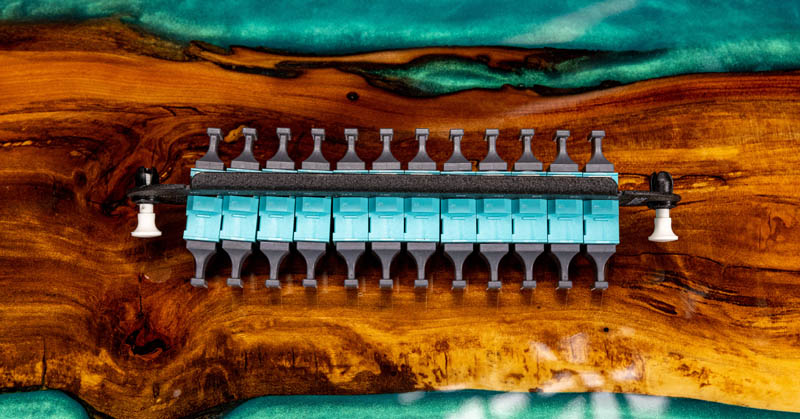
Opening up the older, decommissioned, and the fuller unit we can see a bit of a different layout. There are more cable management mounting points on the top and the bottom. There is also a hinged top where the cable management hooks reside on the ceiling of the unit. Clearly, the bigger feature is that this has a total of 12x 24 shuttered LC connections.
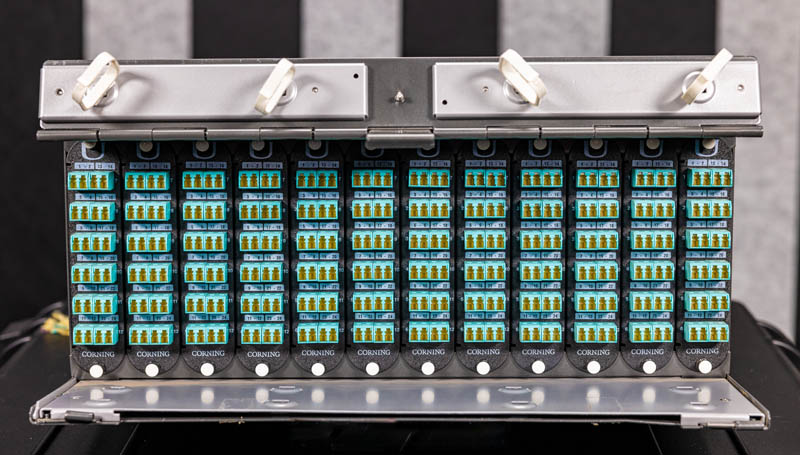
Each of these CCH modules (CCH-UM24-06-93T) has 24 shuttered LC connectors on one end. One can, as a result, plug twelve LC duplex cables. (See the difference between LC and SC connectors guide here.)
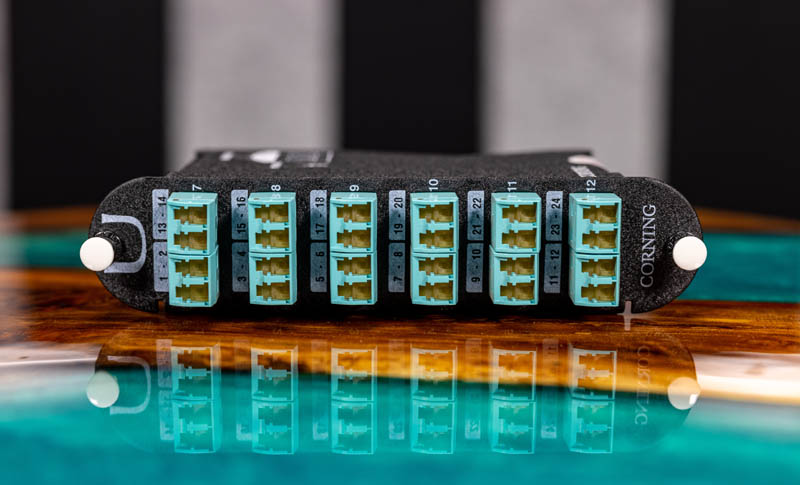
The “shuttered” feature means that the LC duplex connectors have small shutters or doors that are moved out of the way when a LC cable is inserted. This means one does not have to manage dust covers, especially important when these are full.
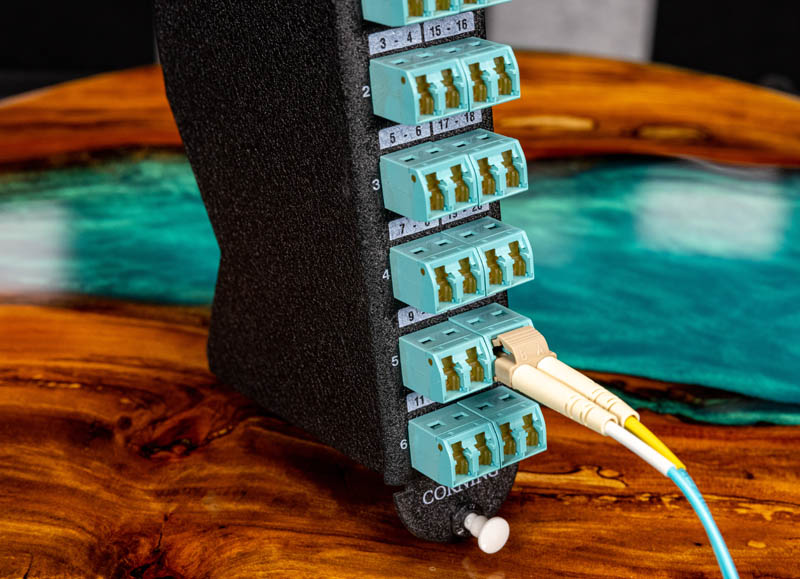
The rear of the units has two MTP-12 connectors. Each MTP-12 connector brings in 12 fibers and so one connects to ports 1-12 and the other 13-24 on the front. Inside the box, all of this breakout action happens.
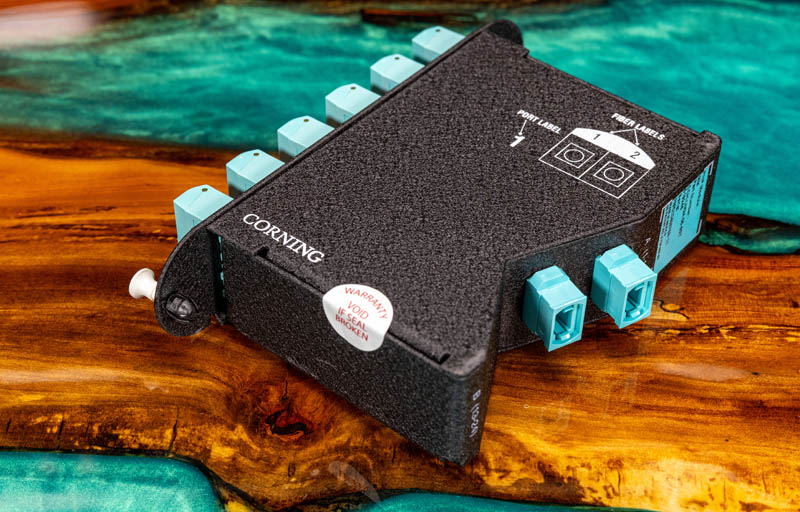
We have had some questions about the MTP-12 fibers we are using. Here you can see them at the end of this cable. The cassette breaks out these twelve fibers in this connector and turns them into six pairs of LC connectors on the front of the cassette. The two larger holes on either side of the twelve fibers are for guide pins as this is a female connector.
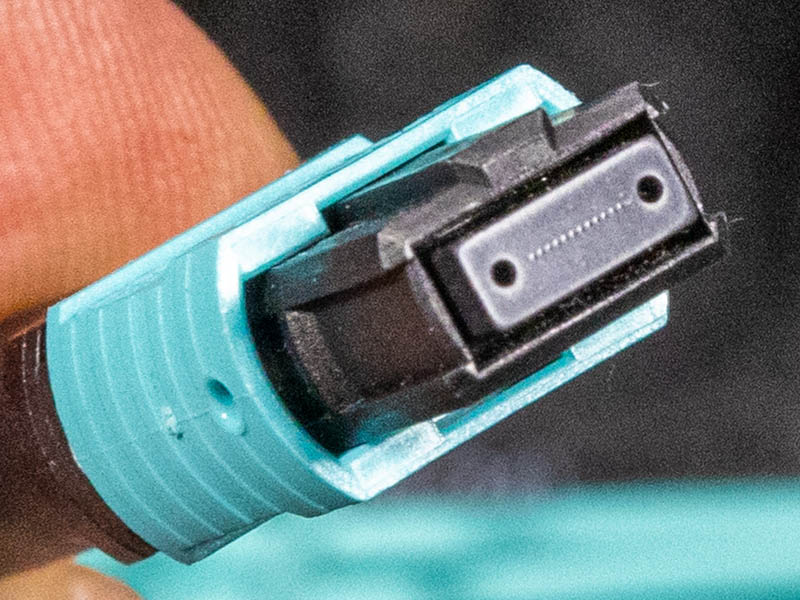
Keeping track of higher-density connections can be a challenge. As can labeling them given how dense this 288 fiber housing is. Corning has stickers that affix to a plate that slides out from the bottom of the unit that allows for labeling of the connections without having to disturb fibers while updating labels.
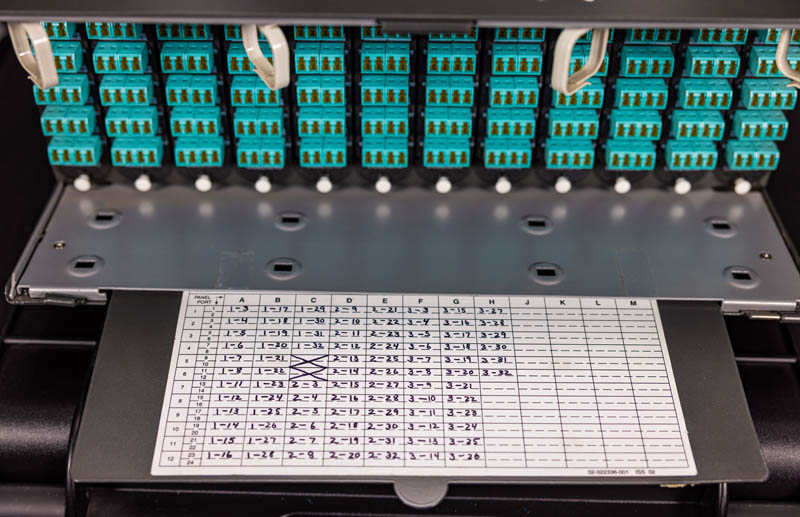
While the output of the chassis we are looking at is a 288-fiber LC array, the input is only two cables. Here we see the two Corning 144-fiber input cables. These have been cut outside of the chassis as this was decommissioned. One can see the kevlar (?) yarn as well as an optional feature. Here there is a bracket to guide the two 144-fiber cables into the chassis. Zip ties are then used on this bracket to secure them and ensure nothing inside is disturbed.
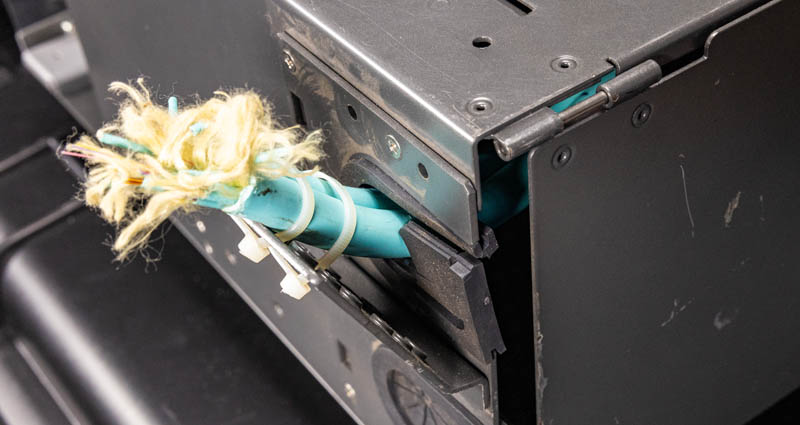
Just for some sense, here is a newer unit, and one can see the rubber grommets so fiber optic cables do not rub against the metal housing. One can also see the mounting points for the brackets. If you are thinking there are too many entry points with these four paths in, remember that the 12x MTP coupler that we looked at earlier will require a 144-fiber bundle each, and there are twelve slots on this chassis.
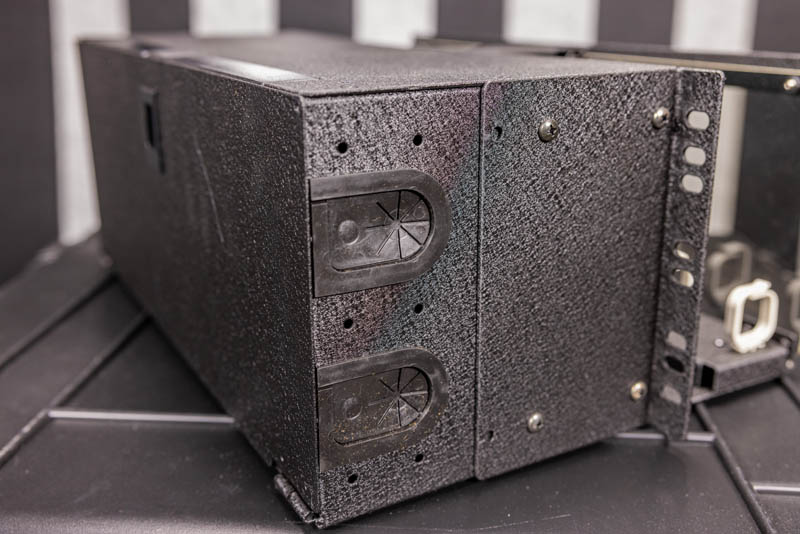
Here we have the two 144-fiber cables entering the chassis.
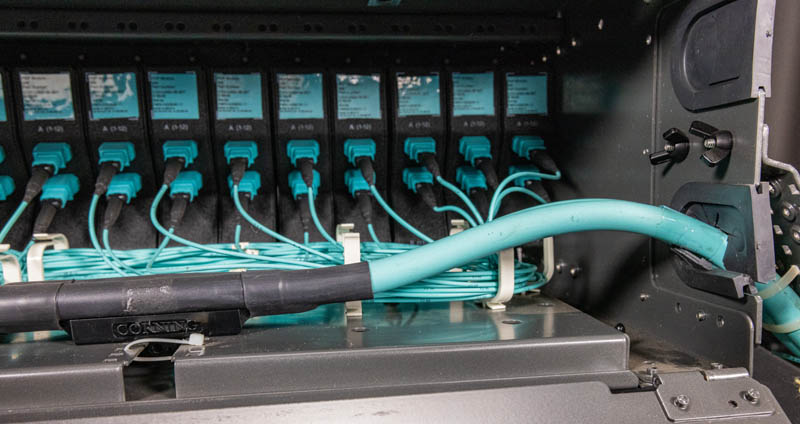
The area where the outer layer of cable ends, exposing all of the MTP-12 cables is wrapped and secured for both cables.
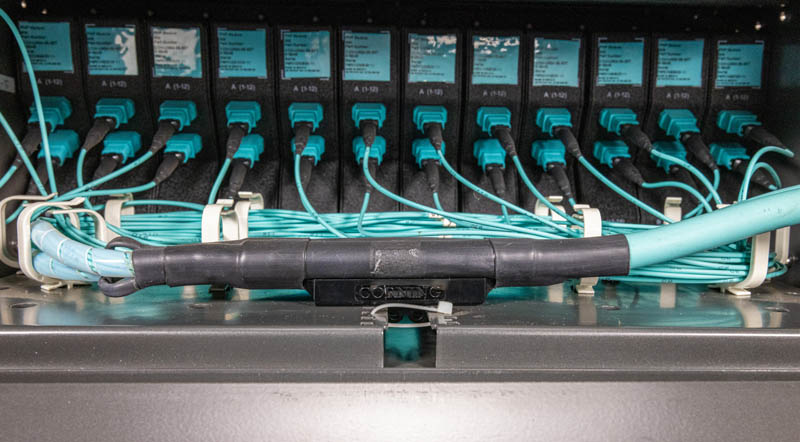
These individual MTP-12 cables have some length and also need to service both sides of the 19″ 4U rackmount chassis. As a result, they are brought around the internal cable management area in the rear of the chassis to ensure they do not kink or have too extreme of bends.
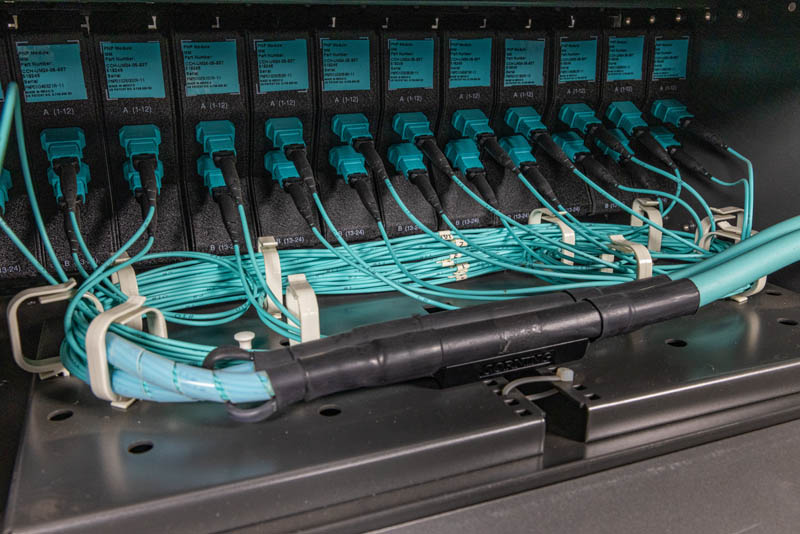
If you have not realized this, again, this is a unit we got that was cut directly out of a data center that was in-service for many years so we can see a few of these cables out of place. Still, it gives a good sense of what is going on here.
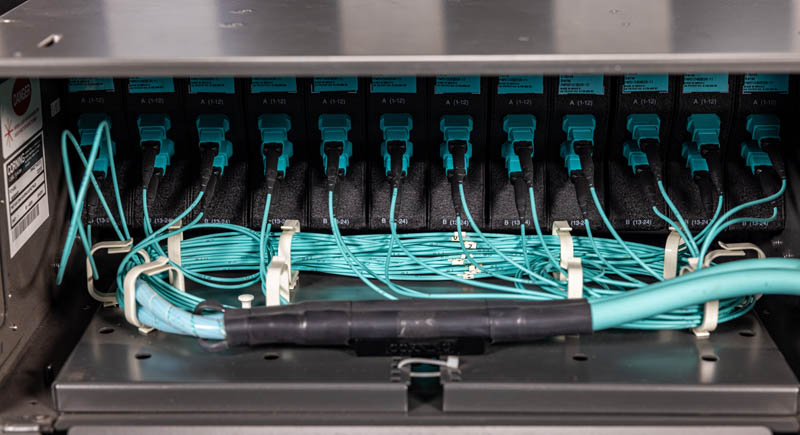
Eventually, these MTP-12 connectors arrive at the cassettes exiting the circuitous path around the CCH-04U.
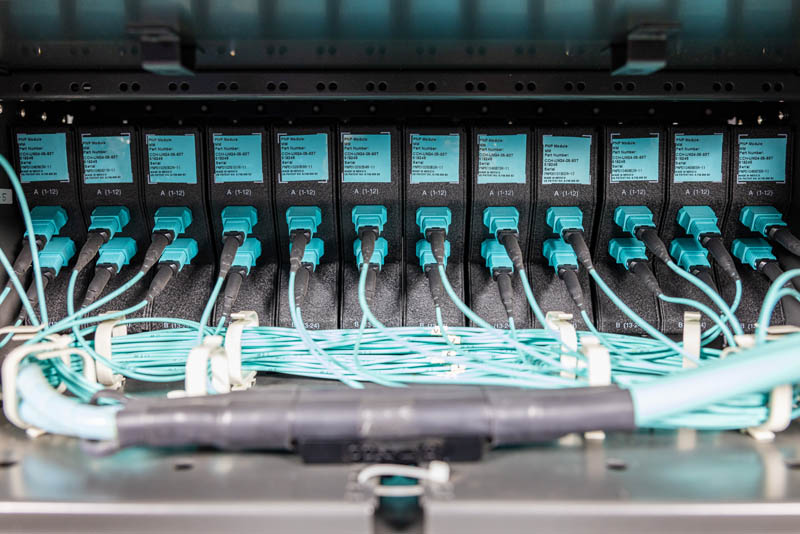
One area that you commonly see these boxes is in MMR areas like this one we saw on our recent Touring the PhoenixNAP Data Center piece.
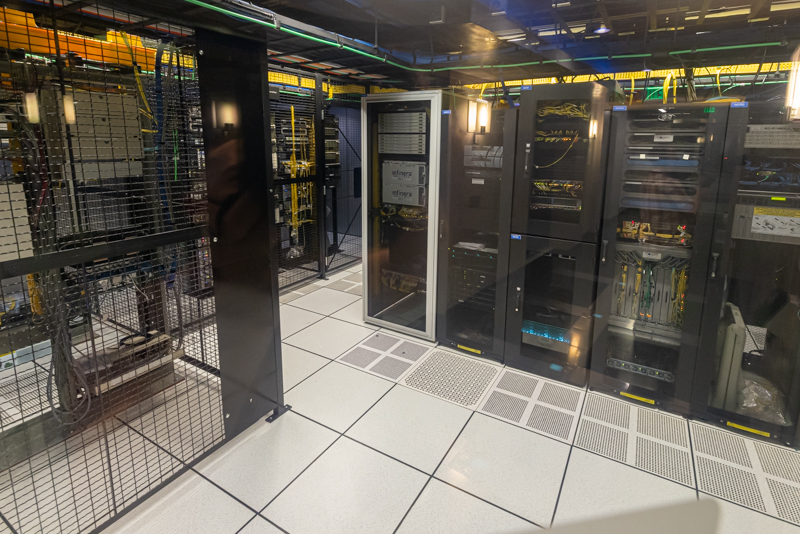
The CCH-04U has been around for a long time so they are actually quite common to see on data center tours.
Final Words
Hopefully, this quick look at the Corning CCH housings is one that our readers enjoy. There are many different options on the market and different systems. Some will now get to higher density, but we hope that these provide the balance of density and serviceability that STH needs for its fiber project.
If you have other systems you would like us to look at, feel free to drop a comment. Corning also has other systems like their EDGE, Pretium, Centrix, and Eclipse platforms so this is actually quite a large space.

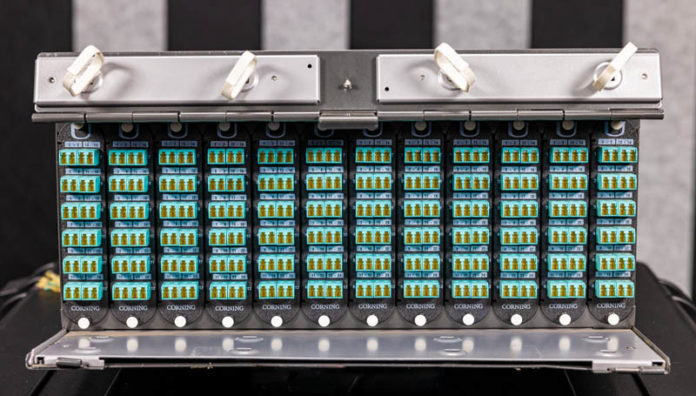
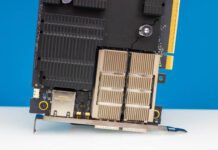
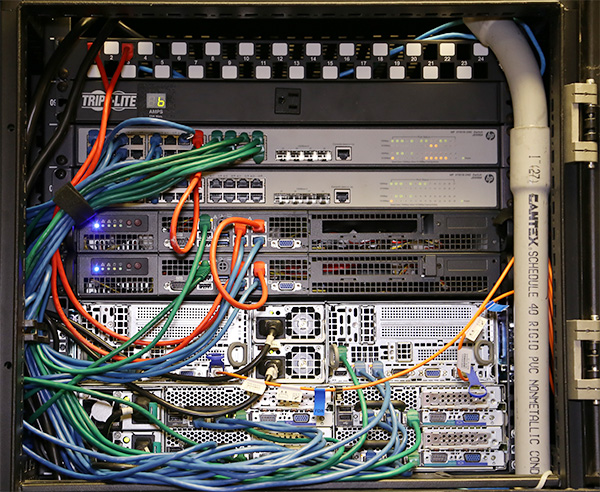
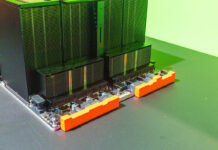
What is new was once old. Wut?
I once saw a device like this…in a telecom lab…back in the mid 1990s…for FDDI fiber technology.
This product just goes to prove that simple functional products tend to retain their usefulness over longer periods of time compared to high tech junk.
Face it. The cast iron frying pan has been around for a century or more and will probably be around for another 50 to 100 years. As for a Google Pixel phone? You would be lucky to get any updates or a replacement screen for it. :))))
Thanks for the information on MTP cable, etc. i haven’t used that cabling yet. But it really makes sense for running many fibers (& for long distances).
And thanks for the education on Shuttered fiber connectors. I have lots of the little white plugs lying around from my cassette termination plate connectors.
Excellent content as usual from STH. Keep up the great work.